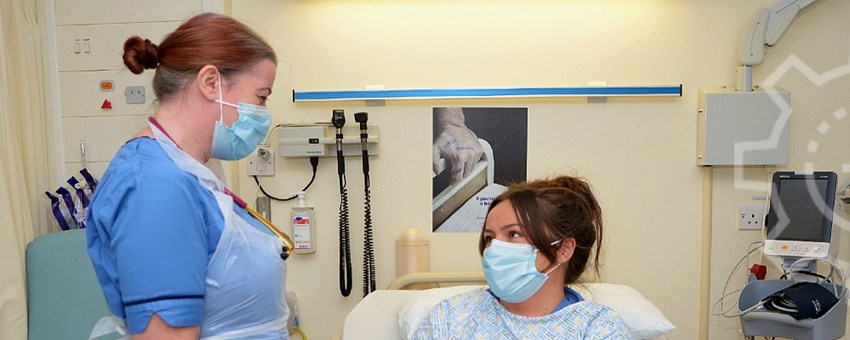Paediatric (childhood) cancer
What is paediatric cancer?
Paediatric (or childhood) cancer refers to cancer affecting a child or young person up until the age of 16. Childhood cancers are very rare and may differ from adult cancers in the way they grow, the parts of the body they affect, how they are treated and how they respond to treatment.
Common types of childhood cancer include lymphoma (affecting cells of the immune system), leukaemia (affecting blood-forming cells such as bone marrow), neuroblastoma (affects certain nerve cells), Wilms tumour (form of kidney tumour), sarcoma (affecting bones and soft tissue such as Ewing’s, osteosarcoma or rhabdomyosarcoma) as well as brain and central nervous system tumours (including both benign and malignant tumours).
Children requiring radiotherapy treatment (including either photon or proton radiotherapy) will have this part of their treatment co-ordinated by a team experienced in treating children and young adults with cancer, based at the Beatson West of Scotland Cancer Centre (BWoSCC).
The BWoSCC deliver a range of radiotherapy services for children, including:
- Total Body Irradiation (TBI)
- External beam photon and electron treatments
- Stereotactic radiotherapy and MIBG therapy.
Children who are potentially suitable to receive a form of radiotherapy, called Proton Beam Therapy (PBT), will have treatment delivered outside Scotland. The paediatric radiotherapy team will discuss whether this may be suitable for your child and work closely with the Proton Beam Centres. You will meet a Clinical Oncologist (consultant specialising in radiation treatment) from BWoSCC prior to consideration of PBT referral.
Some children may require a general anaesthetic for some or all of their radiotherapy (for both photon and proton treatments). This is provided, when required, by paediatric anaesthetists and anaesthetic assistants. We actively try to reduce the need for general anaesthetics in children wherever possible and this will be discussed with a child and their parents on an individual basis.
The paediatric radiotherapy service aims to be as flexible as possible to accommodate the unique needs of children and their families. There are information booklets for both the children and their parents, which we aim to make available well in advance of treatment.
There are many different members of staff involved in the care of children with cancer. These may include:
Paediatric Orthopaedic Surgeon
A doctor who treats children with injuries and diseases of bone, joints or soft tissues from birth to adolescence who may require surgery as part of their care. They will have expertise in complex bone and soft tissue tumour surgery, which may include biopsy, removal of tumour and procedures such as endoprosthetic reconstruction.
Paediatric Anaesthetists
A doctor who specialises in treatment of children who may require sedation, regional or general anaesthesia. Paediatric anaesthetists may be involved in daily anaesthetic for a child receiving radiotherapy and work closely with the rest of the paediatric radiotherapy team.
Paediatric Pathologists
Doctors who examine a tumour taken, often in the form of a biopsy, from a child. A series of tests are carried out, which can help establish the type of tumour affecting a child, which is important in helping guide the most appropriate treatment.
Paediatric Radiologists
Doctors who specialise in performing and interpreting specialist scans to confirm a diagnosis and assess a child’s tumour throughout treatment. Paediatric radiologists are sometimes also involved in performing tissue biopsy, where a small piece of tissue is drawn through the skin for examination, or insertion of a tunnelled central (Hickmann) line.
Paediatric Outreach Nurses
Each child will have an allocated nurses, or nurses, who provide support for a child and their family at all stages of treatment and beyond. They provide a link between the general practitioner, schools and other healthcare workers involved in supporting a child and family throughout treatment.
Paediatric CLIC Sargent Social Workers
Specialist social workers who work with children and families diagnosed with cancer by providing support or information for practical and financial elements throughout treatment. CLIC Sargent can also help support accommodation for patients and families who may require it due to travelling distances throughout radiotherapy.
Paediatric Play Specialists
These specialists work on the wards and radiotherapy environments to support children and their families, providing them with coping mechanisms which help to allay their fear and concerns. It is often possible to encourage a child to be co-operative using these techniques during radiotherapy and other treatments, where the alternative might be a general anaesthetic or increased distress. The play specialist often attends radiotherapy appointments with the child and family.
Paediatric Superintendent Radiographer
The paediatric therapy radiographer has expertise in the delivery of radiotherapy to children, which involves providing technical expertise and support whilst children receive radiotherapy as well as preparation prior to starting treatment.
All children with cancer (solid tumours, brain tumours or leukaemia) from the West of Scotland are treated by the team at the Royal Hospital for Children (RHC), which is on the site of the Queen Elizabeth University Hospital, Glasgow.
This team is led by the paediatric oncologists and haematologists, based in the children’s cancer unit. Some children from other parts of Scotland (or in some cases further away) are referred to RHC for treatment in close liaison with the child’s local oncology team.
The oncology unit at RHC accepts children until their 16th birthday. Children older than this will usually be treated by the relevant adult services unless there are specific circumstances where treatment at the RHC would be deemed more appropriate.
The RHC provides comprehensive childhood cancer services, also known as a Principal Treatment Centre (PTC). The child’s overall treatment is co-ordinated by the paediatric oncology team and a complete range of paediatric support services is accessible for children and their families. Many children (about a third) with cancer or leukaemia require radiotherapy at some stage.

